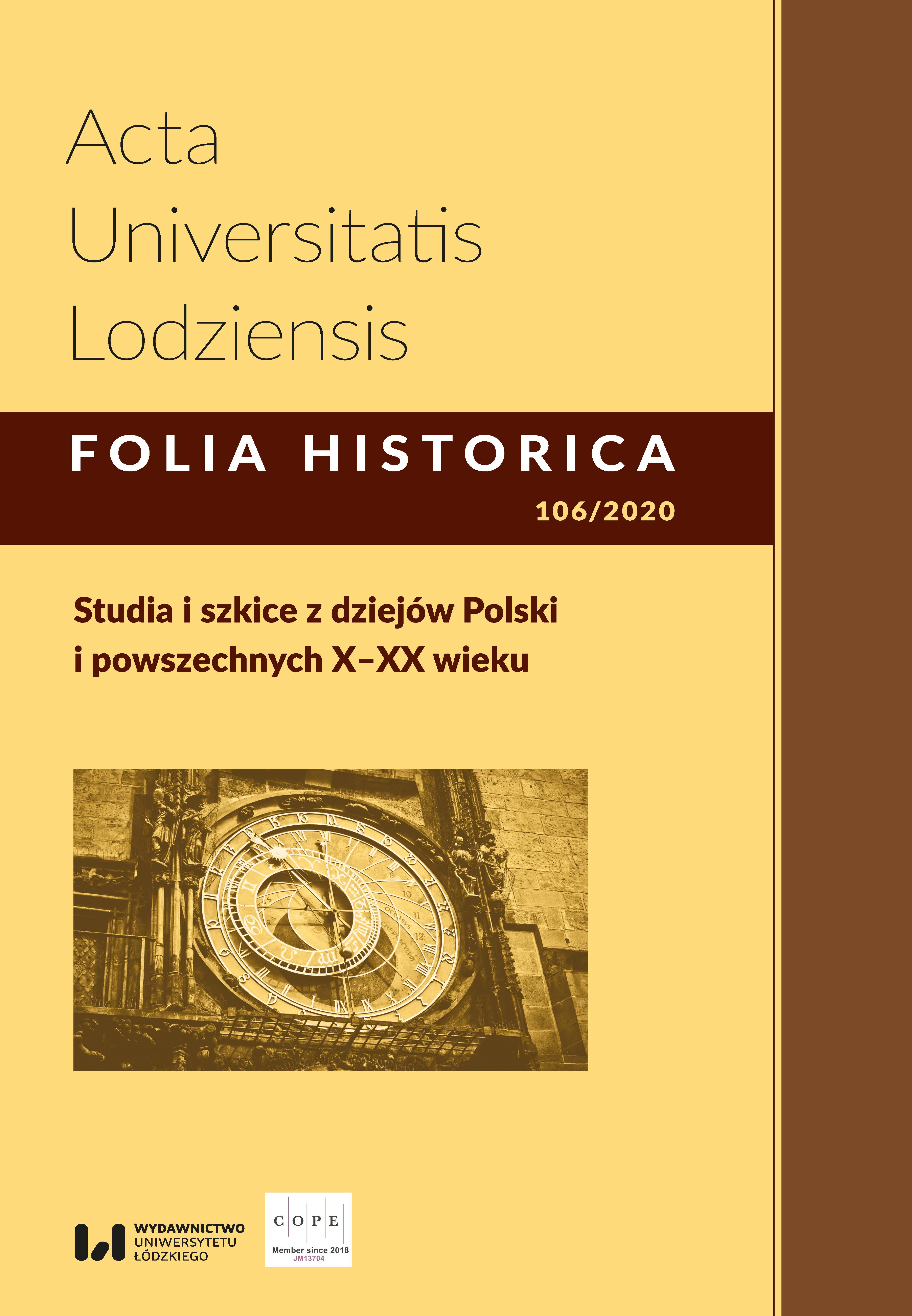„Reakcja pogańska” jako forma realizacji polityki zewnętrznej połabskich organizmów politycznych
“Pagan reaction” as a form of realization foreign policy by Wendish political centres
Author(s): Michał Witold PychowskiSubject(s): History, Middle Ages, Theology and Religion
Published by: Wydawnictwo Uniwersytetu Łódzkiego
Keywords: pagan reaction; paganism; Christianity; West Slavs; Polabian Slavs; Middle Ages; policy; propaganda
Summary/Abstract: There are evidences, that West Slavic pagan political centers used so-called pagan reaction in theirs foreign policy. Best exeples for that are 3rd insurection of Wends, overthrow of Obodrites dukes (Mstislav in 1018 AD, and Gotszalk in 1066 AD), Rugian intervention in Szczecin while Otton of Bamberg second missionary trip, 11th century revolution in Poland, and related with it separation of Pomerania from Piast monarchy. Stroimir insurection was inspired from abroad too, however it ware Bavarian political influences behind it. Special feature of this type of events (excluding Rugian expedition on Szczecin) was useing of propaganda in order to revolt local citizents against authority and christianity. As a main inspirators we found two north-wendish political centres: Lutician Federation and Rugian tribe. Ideological and propaganda basis of such events was based on established vision of relationship between comunity that intervented and the greatest divinity in wide accepted pantheon. Sources shows, that was happening by character “Svarog’s son”, namely famous Svarozic from Rethra. It was manifested in overtribal magnitude of sanctuaries related with mentioned political centres (Rethra, Arkona). Contents of narration could be placed in well known in region ethnogenetic myth, which emphasizes community uniqueness, her ancient traditions and special place in region history. Wendish federations and tribal states in this way become a kind of “Chosen people”. Successes of political center were factors that strengthened credibility of propaganda. Without them devine hierarchy might change. Mentioned propaganda contents reach recipients by oracle activity, or council summoned ad hoc. Under the pretext of counteract sacrilege and with use of internal opposition, members of a neighboring tribes were incited against the authority. Factor that facilitate this way of intervention was ruler cultural alienation towards his subjects.
Journal: Acta Universitatis Lodziensis. Folia Historica
- Issue Year: 2020
- Issue No: 106
- Page Range: 9-28
- Page Count: 20
- Language: Polish

